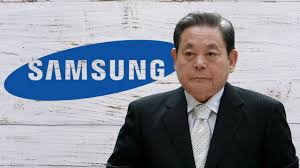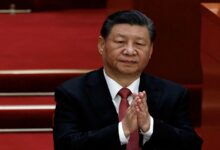
The final three months of 2022 are projected to see Samsung’s profits decline by 69% to their lowest level in eight years.
The largest manufacturer of memory chips, smartphones, and TVs in the world anticipated that its operating profit would drop to about 4.3tn won ($3.4bn; £2.8bn) for the time period.
It occurs as the recession in the world economy affects the cost of memory chips and the demand for electronic devices.
As customers tighten their belts, global technology titans have recently taken a hit.
It was Samsung’s lowest quarterly profit since 2014 and fell short of 5.9 trillion won in investor estimates.
The South Korean business claimed that when clients reduced their supplies of the essential parts for digital gadgets, there was a greater-than-anticipated decline in demand for computer chips.
As clients changed inventory in an effort to further tighten their budgets, the fall in demand for memory products in the fourth quarter was larger than anticipated, according to Samsung.
It said, “Smartphone sales and revenue declined due to sluggish demand brought on by persistent macro difficulties.
On January 31, Samsung is expected to release its complete financial statement.
It is the most recent significant technological corporation to discuss the effects of the global economic downturn on its operations.
Sales have also slowed after the pandemic’s spike in demand, when consumers at home spent a lot of money online.
Tens of thousands of jobs are being lost throughout the worldwide IT sector as a result of sluggish sales and mounting worries about a recession.
The highest number of job losses in the company’s history, more than 18,000, were announced by Amazon this week as part of its cost-cutting efforts.
Meta said in November that it would reduce its employment by 13%.
There will be 11,000 job losses from an overall workforce of 87,000 due to the social media company’s first major layoffs.
The adjustments, according to Mark Zuckerberg, chief executive of Meta, were “the most challenging changes we’ve ever done.”
The announcement came after Twitter made significant personnel reductions, cutting almost half of its workforce when billionaire Elon Musk took over the company in October.










